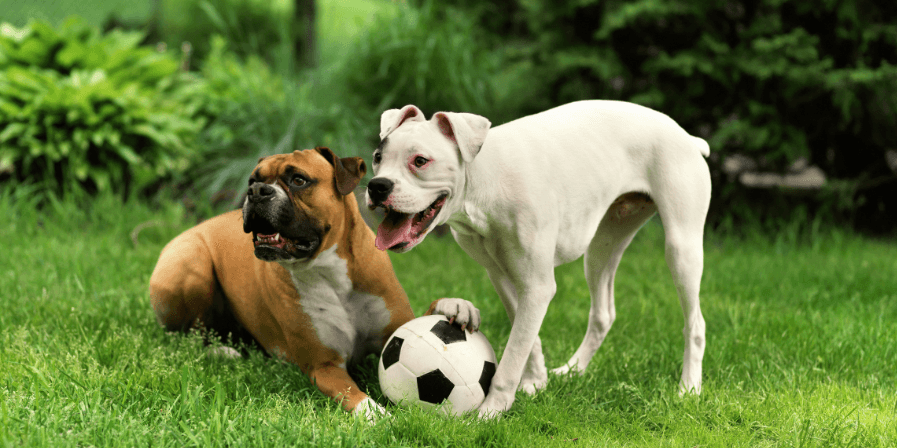Benefits of Socializing Your Dog

Explore the numerous benefits of socializing your dog, from reducing aggression to building stronger bonds and promoting mental stimulation.
Benefits of Socializing Your Dog
Reduced Aggression and Fear
Dogs that are well-socialized from a young age are less likely to develop aggressive behaviors or exhibit fear towards unfamiliar people, animals, or situations.
Improved Behavior in Various Settings
Socialization helps dogs adapt to different environments, making them more comfortable and well-behaved in various situations, whether it's at home, in public places, or around other pets.
Enhanced Confidence
Exposure to new experiences, people, and animals builds your dog's confidence. A confident dog is more likely to approach new situations with curiosity rather than fear.
Better Communication Skills
Socializing enables your dog to develop better communication skills, both with humans and other dogs. This can lead to smoother interactions and reduced stress in social settings.
Positive Exposure to People of All Ages
Socialization exposes your dog to people of all ages, from children to the elderly. This helps them become comfortable and friendly around individuals of different age groups.
Prevention of Behavioral Issues
Proper socialization can prevent the development of behavioral problems such as excessive barking, chewing, or separation anxiety by promoting a well-adjusted and balanced temperament.
Easier Vet Visits and Grooming
Dogs that are accustomed to social interactions are generally more cooperative during vet visits and grooming sessions. This makes it easier for veterinary professionals and groomers to provide necessary care.
Positive Relationships with Other Pets
Socialization fosters positive relationships with other pets, both within the household and in social settings. This can reduce conflicts and promote harmony among furry family members.
Stress Reduction in New Environments
Socialized dogs are less likely to feel stressed or anxious in new environments. They adapt more easily to changes, making travel or visits to new places a more enjoyable experience for both you and your dog.
Safe Interaction with Humans and Animals
Socialization teaches your dog how to interact safely with humans and animals. This is especially important in preventing aggressive or fearful behavior that could lead to conflicts or injuries.
Builds a Stronger Bond with the Owner
Socializing your dog involves spending time together in various activities. This shared experience strengthens the bond between you and your dog, enhancing your relationship.
Promotes Mental Stimulation
Exposing your dog to new sights, sounds, and experiences provides mental stimulation. This helps prevent boredom and can contribute to a healthier, more mentally active pet.
FAQs
When should I start socializing my dog?
Start socializing your dog as early as possible, ideally during the critical socialization period (usually between 3 and 14 weeks of age). However, older dogs can still benefit from socialization with patience and positive reinforcement.
What if my dog is fearful or anxious during socialization?
Take it slow and be patient. If your dog shows signs of fear or anxiety, create a positive association by using treats, praise, and gradual exposure. Consult with a professional dog trainer or behaviorist if needed.
How do I socialize my dog with people, especially children?
Introduce your dog to people of all ages, including children, in a calm and controlled manner. Teach children how to approach and interact with the dog gently. Always supervise interactions.
Remember that socialization is an ongoing process, and it's never too late to start. Gradual and positive exposure to a variety of people, animals, and environments is key to reaping these benefits and ensuring a happy, well-adjusted canine companion.